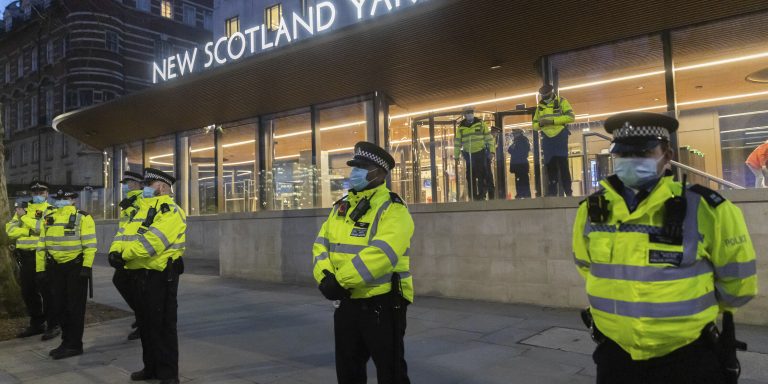INTELBRIEF
October 8, 2021
IntelBrief: The Murder of Sarah Everard and the Impact on Policing in the UK

Bottom Line Up Front
- On September 30, the Metropolitan Police officer who murdered Sarah Everard was given a “whole of life” sentence.
- Wayne Couzens used his police powers to abduct Everard from a London Street on March 3rd before brutally raping and murdering her, then disposing of her body.
- Misogyny remains a societal cancer, affecting how police investigate crimes against women and police their own.
- There is no greater betrayal of trust than those with the power of the state preying upon their neighbors, and the judge reflected on this when sentencing Couzens.
Some crimes transcend statistics and the deliberate murder of someone by a police officer is one of them. To say that such crimes are quite rare might be accurate statistically, but the impact of the crime itself is about so much more than figures, numbers, and percentages. These types of crimes are directly related to how a society views those it has bestowed with significant powers under the law. It is difficult to overstate how outrageous these crimes are on the individual level and on the societal level. On September 30, 2021, Wayne Couzens was given a life sentence with a ‘whole life order’ (WLO, life without the possibility of parole) for murdering Sarah Everard on March 3rd, 2021. Couzens was a London Metropolitan Police officer when he used his police powers to abduct Everard from a London Street and then rape and murder her. Couzens pled guilty in June. When Parliament abolished the death penalty, a promise was made to British citizens that the very worst offenders would be locked up for the rest of their lives, and a complex set of rules for judges’ dictates when they can impose a WLO. Lord Justice Fulford concluded the misuse of a constable's role to deceive, kidnap, rape and murder Sarah Everard was as bad as terrorism; not only was it one that prolonged suffering for the victim, it undermined trust in the police - part of the bedrock of a safe society.
There is understandable outrage in the U.K. over not just that a police officer, using his police powers, abducted a woman from the street, reportedly in the guise of wanting to make an arrest, and then murdered her, but also that this person was still a police officer at all. Questions arose surrounding screening, vetting, and training of police officers. Couzens had been accused of indecent exposure in 2015 when he was an officer with the Civil Nuclear Constabulary in Kent. Still, the complaint failed to prevent him from being hired by the Met in 2018. Just days before he murdered Sarah Everard, Couzens was again accused of indecent exposure, but had not been pulled off the streets. There are now investigations into whether the Kent Police and the Met handled those complaints properly, as well as an investigation into misogynistic chats and text messages involving Couzens and other officers, pointing to a toxic culture that is antithetical to a professional environment. In other cases, even when such environments were discovered following investigations, it remained unclear what tangible steps police and other law enforcement departments took to begin changing this culture.
Policing, like the military from which it draws much in terms of structure and mindset, has clearly not done enough to address misogyny among its ranks. This can be seen in the endless struggle to get police departments to handle domestic violence as the severe crime it is and not just a private matter that some families go through from time to time. It can also be seen in how police departments handle sexual assault or harassment cases in which the victim is too often held culpable in some manner. And it can be seen in how these police departments handle when one of their officers are accused of conduct or even crimes of a sexual or misogynistic nature. When accusations of police impropriety are ignored, or a double standard exists when it comes to who is required to follow the law and who is not, the issue becomes corrosive to society.
No vetting or pre-hire process is perfect, but far more must be done by police departments to ensure that those with misogynistic, racist, and violent beliefs and even acts must never be given the power of the state. Policing in democracies can and must only exist through the consent of societies and that consent will not tolerate continued insufficient vigilance by police departments against police officers who act like criminals. There is no greater outrage than a police officer using the power of the state to marginalize—and in this case terrorize and murder—the people of that state; no greater outrage except for a government and police department keeping such an officer in their employ. Metropolitan Police Commissioner Dame Cressida Dick has now ordered an independent six-month investigation into the force’s internal culture and professional standards but as they say, the proof will be in the pudding. Citizens – and women around the world in particular – will be eager to see what concrete action is taken in the light of such an inquiry. The murder of Sarah Everard has shaken British society and placed a long overdue spotlight on the backgrounds and behaviors of police and other law enforcement personnel. A history of misogyny should be an immediate disqualification to become a police officer and a disqualification to remain a police officer.